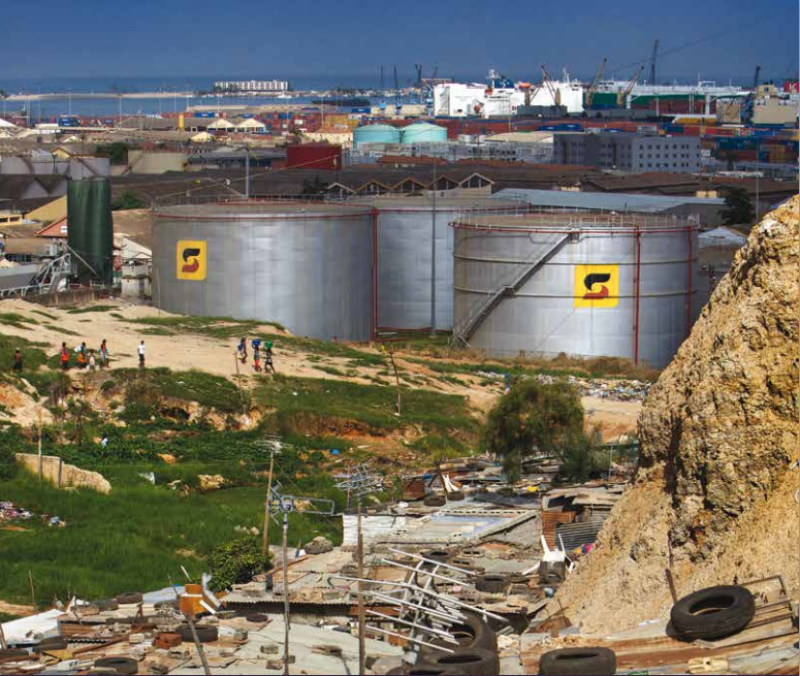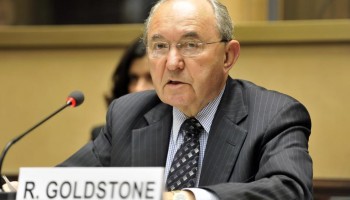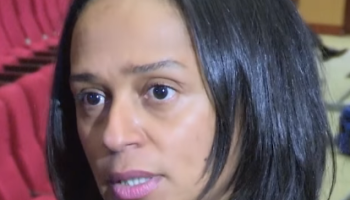Sovereign debt deals have proven to be a regular source of corruption for decades. The deals often require high level governmental approvals to get done and bribery is often used to secure such deals.
A Massive Debt
In 1996, Angola owed Russia $5 billion which equaled two-thirds of the impoverished nation’s GDP, and after years of civil war was likely to default on the loan. The Angolan government seeking to reduce its debt, turned to Russian Arcadi Gaydamak and Algerian Pierre Falcone, businessmen who had helped them in the past to bypass UN arms trading sanctions, to handle the negotiations.
The pair outlined an agreement with Russia one month later.
Under a restructured payment plan, Angola would pay Russia $1.5 billion, a 70 percent reduction from the original debt, at a six percent interest rate. After a five year grace period, Angola would repay the debt (including accrued interest) in 31 installments over 15 years. The Angolan Central Bank gave the Russian government 31 promissory notes -- an agreement for one party to repay a debt to the bearer of the note at a set time.
Gaydamak and Falcone would use this new deal to make themselves a fortune.
Something for Nothing
Key to their scheme was the fact that promissory notes could be sold to a new bearer, and Angola would then be required to make payments to the new holder. In late October, 1996, the Russian government issued a decree which allowed the sale of Angolan promissory notes to take place. Falcone and Gaydamak created the offshore shell company Abalone Investments two weeks later. Abalone, based on the Isle of Man, was created for the sole purpose of mediating the debt deal, according to the Associação Mãos Livres and Corruption Watch UK report.
Normally, a middle man such as Abalone would pay Russia for the recently issued promissory notes at, or near face-value, and then end up with a reasonable profit off of accrued interest when Angola paid for the note. Angola, which has large oil resources, was developing its industry and was a good bet to pay off its now reduced debt.
Abalone signed an agreement with the Russian government to buy the promissory notes in six batches between 1997 and 2004. But unlike a traditional mediator, Abalone took “absolutely no risk” when it entered the deal, the Associação Mãos Livres and Corruption Watch UK report said. The company bought the promissory notes at half their face value, and paid $750 million for $1.5 billion worth of promissory notes.
Falcone and Gaydamak then turned around and sold the promissory notes and certificates to Angola’s state oil producer, Sonango, which agreed to pay full face value. The move guaranteed Albolone a profit of $750 million. The transaction was also unnecessary because the oil company could have bought the debt directly from Russia saving the country more than $750 million.
The Swiss Bank Corporation (SBS), and its successor, Union Bank Suisse (UBS), operated as the escrow bank for the debt deal: the bank ensured that payment was made before the promissory notes and confirmation certificates were transferred to the buyer. Despite a slew of suspicious transfers, UBS failed to report discrepancies related to the debt deal to authorities, according to the Associação Mãos Livres and Corruption Watch UK report.
New Angles
Abalone’s owners found other avenues to maximize their profit. After 1999, the company did not even pay cash to the Russian government for their deeply discounted promissory notes. Instead, they bought Russian debt on international markets and exchanged the debt at a one to one rate with to the Russian government even though Russian debt was trading at a deeply discounted rate of 10 cents on the dollar at the time. Through the purchase of much cheaper Russian debt and its exchange for promissory notes, Abalone actually paid between $5 million-$17 million for each note, which normally cost $48 million. Why Russia would agree for a trade at a one-one ratio is unclear, but it points to complicity on the part of Russian government, the report said.
From 2000-2001, Falcone and Gaydamak were under investigation in France for their role in an arms deal during the Angolan civil war. Swiss authorities, in a concurrent investigation, eventually froze Falcone’s UBS account, and seized the 15 remaining Russian promissory notes from the bank; Gaydamak searched for another way to continue to make a profit.
In October 1999, the Russian Ministry of Finance had officially named Sberinvest Bank, based in Moscow, as the new escrow bank for the debt restructuring deal. With his accounts frozen, Gaydamak decided to take a gamble, and use this information to his advantage. He opened a bank account at the Cyprus-based Russian Commercial Bank: he called the account “Sberinvest”. According to the report, Gaydamak intentionally named the account similarly to the Russian escrow bank’s name to fool Angolan officials into believing that they were paying the Russian Finance Ministry’s escrow bank. It worked, and the money flowed directly to Gaydamak’s account.
Between March and August, 2001, the Angolan government sent over $618 million dollars directly to Gaydamak’s account. In return, Gaydamak sent a portion of the money on to Russia, kept a large portion for himself, and told the Angolans that their debt had been settled. The Russia government, however, still expected to be paid the missing amount. The ruse was not discovered until 2005, when, strangely, the response by both the Angolan and Russian governments was to reach a new agreement with Abalone. Abalone would be free and clear if they repaid $206 million dollars to Angola.
Cost of Corruption
Abalone’s role in the debt restructuring deal was ill defined. The company offered little and took obscene profits, the report said. The deal made no sense for either Angola or Russia. In the best circumstance, Angola paid close to $1.573 billion dollars to settle its debt, $73 million more than necessary. In the worst case, if Gaydamak did not return the $206 million he stole, the country would have paid nearly $1.78 billion dollars on a debt of $1.5 billion.
If Angola had paid the same rate on the debt as Abalone had, the nation would have saved at least $823 million, and could have saved as much as $1 billion dollars, the report estimated.
According to the report, Gaydamak and Falcone made away with an estimated $138 million and $124 million, respectively. A third partner and former Russian Member of Parliament, Vitaly Malkin, made nearly $49 million off the debt deal. José Eduardo dos Santos, then President of Angola, received over $36 million dollars from Abalone, while a former Angolan Ambassador collected more than $17.5 million, through a series of convoluted financial transactions involving banks and shell companies in Luxembourg and Panama, an investigation by the French Financial Crimes unit revealed. The money trail also leads back to then Director General of Sonangol, Joaquim David, who received over $13 million for his role in the charade.
A handful of individuals made off with massive amounts of money. UBS, along with a number of other financial institutions, gained lucrative business and failed to ask the questions they should have. Across the board, from regulators to bankers, to politicians, systemic failures allowed a large scale theft take place, with no objection, and often the cooperation of those meant to stop it.






